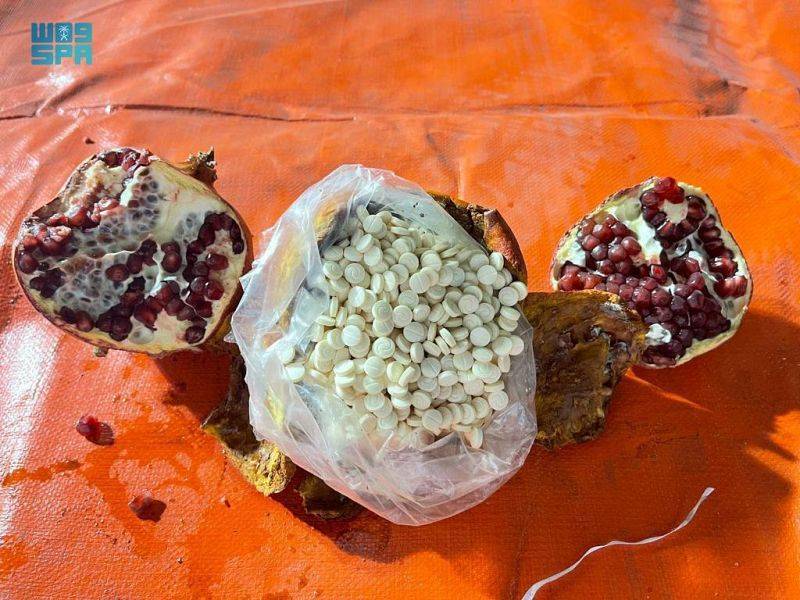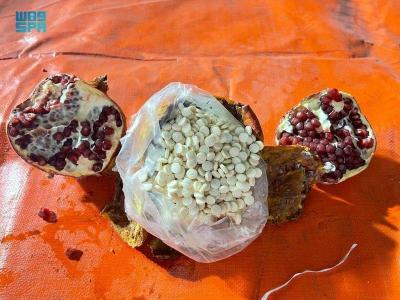The official spokesperson for the General Directorate of Narcotics Control in Saudi Arabia, Captain Mohammed Al-Najidi, stated that proactive security monitoring of criminal networks engaged in drug trafficking to Saudi Arabia has resulted in thwarting an attempt to smuggle 2,466,563 captagon tablets. This operation was coordinated with the General Authority for Customs at King Abdulaziz Port in Dammam, where the drugs were concealed inside a shipment of pomegranates coming from Lebanon.
The spokesperson explained that five individuals involved in the smuggling attempt were arrested in Al-Hafuf, including four citizens and one displaced person. Captain Al-Najidi confirmed that the detainees were taken into custody, initial legal procedures have been completed against them, and they were referred to the Public Prosecution.
Later, Saudi Arabia decided to ban the entry of shipments of Lebanese vegetables and fruits or their transit through its territory starting from 9 AM on Sunday, 13/9/1442H, until the relevant Lebanese authorities provide sufficient and reliable guarantees to take necessary measures to stop the systematic drug trafficking operations against Saudi Arabia. According to a statement reported by the Saudi Press Agency "SPA," "the concerned authorities in the Kingdom have noticed an increase in targeting by drug traffickers sourced from the Lebanese Republic or passing through Lebanese territory, using Lebanese products to smuggle drugs into the Kingdom, whether through shipments coming to the markets of the Kingdom or intended for transit to neighboring countries." The shipments most commonly used for smuggling include vegetables and fruits.




